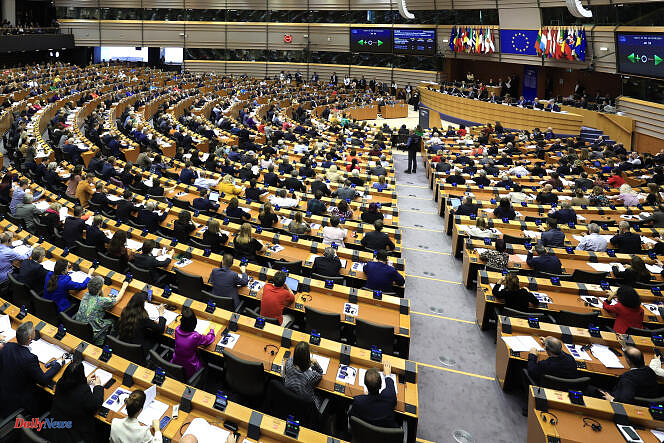On Wednesday April 10, during a mini plenary session in Brussels, the European Parliament adopted the “migration pact”, a vast reform of European migration policy. This “pact on migration and asylum”, which includes around ten pieces of legislation, tightens controls on arrivals at the borders of the European Union (EU) and sets up a system of solidarity between member states for the distribution of refugees.
The reform introduces mandatory “screening” of migrants arriving at EU borders, registering them in a common database, Eurodac. A “border procedure” is planned for those who are statistically least likely to be granted asylum: they will be held in centers while their cases are examined on an accelerated basis, with the aim of returning those rejected more quickly. .
The current rule according to which a migrant's first country of entry into the EU is responsible for their asylum application is maintained, with some adjustments. But a compulsory solidarity system is organized to help countries where many exiles arrive, such as Italy, Greece or Spain.
Other Member States must contribute by taking care of asylum seekers (relocations) or by making a contribution – financial or material – for the benefit of the country under migratory pressure. A way of trying to overcome the opposition of Hungary and Poland to any refugee quota, even if these two countries remain hostile to reform.
An “indispensable historical step” for Olaf Scholz
“We have written a page of history,” rejoiced the President of the European Parliament, Roberta Metsola. “We’ve been working on this for over ten years, but we kept our word. A balance between solidarity and responsibility, this is the European way,” she reacted on X.
The German Chancellor, Olaf Scholz, saw it as an “indispensable historic step” which “limits irregular migration and finally relieves the countries that are particularly affected”.
“Thank you for having the courage to compromise,” the European Commissioner for Home Affairs, Ylva Johansson, told elected officials, hailing a “great success”. “It is time to remedy our failing migration policy,” the official told them before the vote, who had presented this “migratory pact” proposal in September 2020, after the failure of a previous attempt at reform, in the in the wake of the 2015-2016 refugee crisis.
This “migratory pact”, which was generally in favor of the three main European political families – European People's Party (EPP, right), Socialists and Democrats and Renew Europe – on the other hand aroused the opposition of a large part of the extreme right, but also the Greens, the radical left and certain socialists. The reform was the subject of a political agreement in December 2023 and was approved in February by a parliamentary committee.
Increase in asylum applications
Some 161 human rights organizations, including Human Rights Watch, Amnesty International, International Rescue Committee, and Oxfam, had called on MEPs to reject the pact, worrying about “detentions of families with children” and a “ criminalization” of exiles. Same grievances on the left: “it’s a collapse of values,” criticized French elected official Mounir Satouri (Greens).
Conversely, on the far right, the new rules are considered insufficiently restrictive. “There are political forces who want immigration to be a toxic subject that is impossible to manage,” denounced on Tuesday the European Commissioner, Ylva Johansson, at the origin of the pact proposal.
Alongside this reform, which will only apply in 2026, the EU is increasing agreements with the countries of origin and transit of exiles (Tunisia, Mauritania, Egypt) to try to reduce the number of arrivals to its borders. The EU faces a surge in asylum applications, which reached 1.14 million in 2023, their highest level since 2016, according to the European Asylum Agency. “Irregular” entries into the EU are also increasing, to 380,000 in 2023, according to Frontex.
After the vote, the pact will still have to be formally approved by the member states. The European Commission will present an implementation plan by June. Many questions are left unanswered, causing uncertainty about the functioning of the system.












